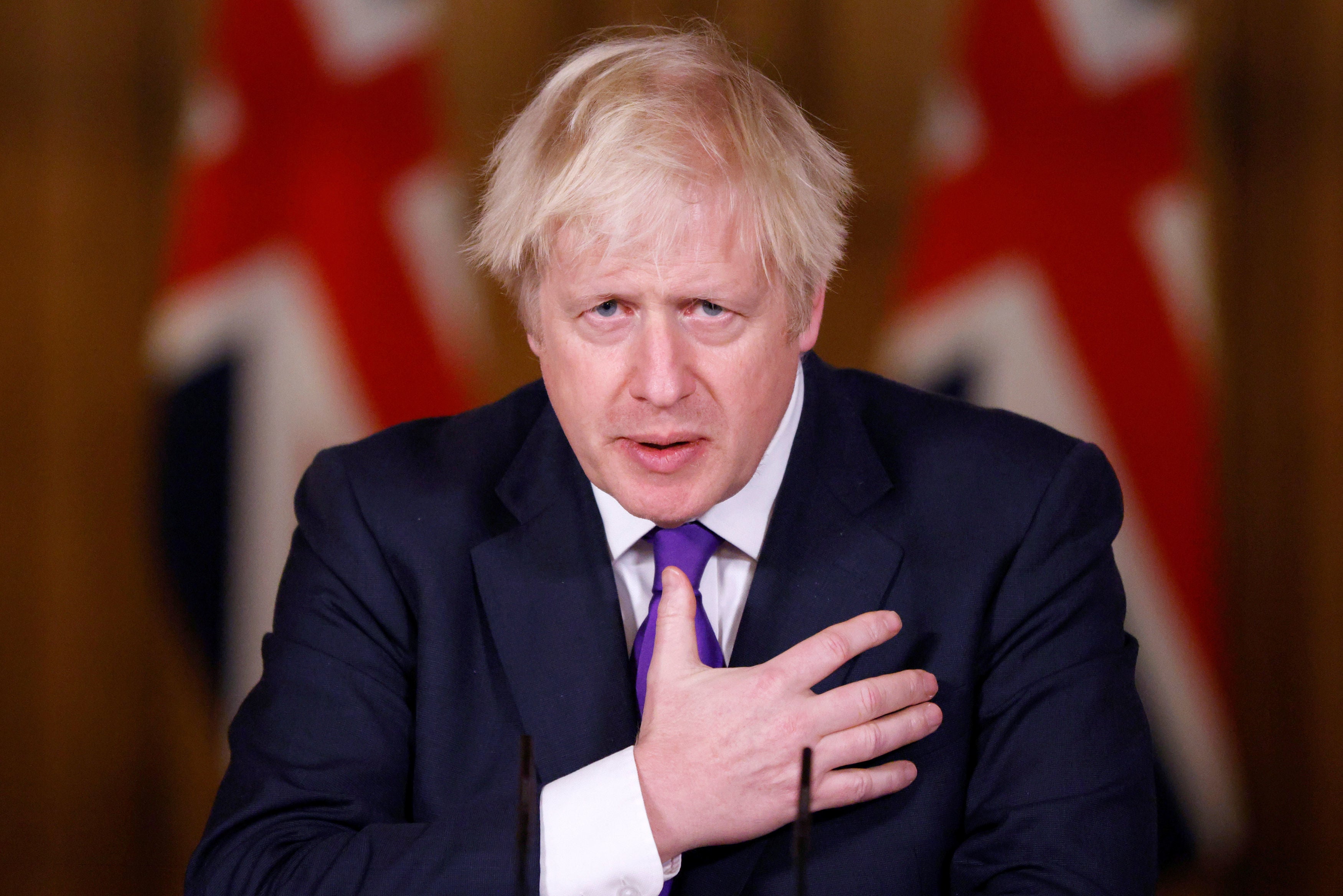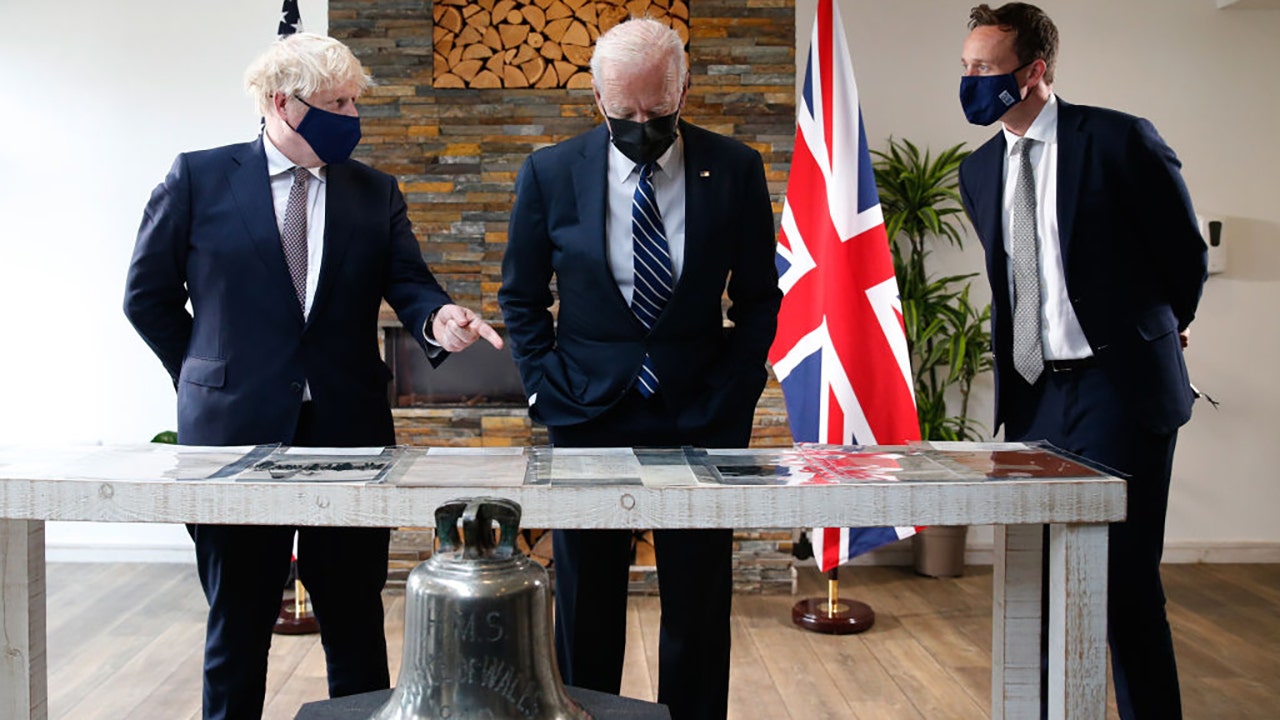Boris Johnson’s 2020: A tumultuous year that upturned all PM’s hopes
T
wo tweets sum up Boris Johnson’s 2020, in perhaps the most extreme example yet seen of social media’s “How it started… How it’s going” meme.
On 2 January, a smiling prime minister, thumbs aloft, declares confidently: “This is going to be a fantastic year for Britain.”
Spool on 12 months to December and a pre-Christmas warning to the nation which lays bare how comprehensively Johnson’s expectations have been dashed in the most tumultuous year that any PM has had to endure in recent times.
“This Christmas it is vital that everyone exercises the greatest possible personal responsibility,” a gloom-laden premier intones to the camera. “Think hard and in detail about the days ahead and whether you can do more to protect yourself and others.”
As 2020 started, Mr Johnson was in his element. A naturally ebullient figure, at his most comfortable when deploying elaborate metaphors and recondite vocabulary to deliver vague but attractive visions of good times ahead, he had plenty to be optimistic about.
Having won the Tories’ chunkiest majority since the Thatcher era in an election which freed him from the toils of parliamentary deadlock and left both the other major national parties in disarray, he had easily passed an EU withdrawal agreement which had previously looked unsellable and was looking ahead to the long-cherished Brexit Day on 31 January which would unleash “global Britain” to be the buccaneering sovereign state freed from the fetters of Brussels that he had promised.
This was surely the moment when he felt he had achieved his childhood dream of being “world king”.
It hasn’t – as they say – worked out like that.
At the moment of his greatest triumph, the seeds of his future woes were sown, with the first UK cases of coronavirus recorded with uncanny irony on 31 January.
Of course, it took a while for the penny to drop with the prime minister.
The following week, in a speech in Greenwich designed to relaunch the UK as “as a campaigner for global free trade”, his first public response to coronavirus was to warn against “a panic (going) beyond what is medically rational to the point of doing real and unnecessary economic damage” and to promise that the UK was ready in response to “take off its Clark Kent spectacles and leap into the phone booth and emerge with its cloak flowing as the supercharged champion of the right of the populations of the earth to buy and sell freely among each other”.
He notoriously skipped the first meetings of the government’s Cobra emergencies committee to consider the novel disease, and then delayed lockdown for weeks after other European countries, boasting of how he was continuing to shake hands with Covid patients even as he was relaying experts’ warnings of the need for hand-washing and social distance.
Even as reality hit home and lockdown was imposed, he struggled to keep his optimism in check, predicting in March that the UK would “turn the tide” on Covid-19 within 12 weeks.
Then on 27 March, the PM himself was struck down by the virus, ending up in intensive care with a serious bout of the illness which a visibly shaken Johnson later said “could have gone either way”.
From that point, his troubles from coronavirus were virtually relentless, from shortages of personal protective equipment to an underperforming test and trace system which repeatedly hit targets by the skin of its teeth, but never managed to trace enough contacts – or persuade them to self-isolate – to make a decisive impact on the pandemic.
His refusal to sack, or even admonish, close adviser Dominic Cummings after his lockdown-breaching trip to Durham caused a collapse in public trust in his handling of coronavirus.
And all this time, he was going against his own libertarian instincts to order the shutdown of pubs, shops and businesses and authorising the state to pay workers’ salaries on a scale that even the most dyed-in-the-wool socialist would never have dreamt of.
A dip in infections in the summer lulled the PM into a misjudged drive to restore normality, which reached the heights of unattributed briefings warning that workers could face the sack if they didn’t return to the office.
Exhortations to “eat out to help out” and start spending in sandwich bars to boost the economy rang hollow when a brutal second wave of Covid swept the country in the autumn as students returned to schools and universities.
While this was happening, the PM himself was going through a range of personal milestones that would on their own constitute a packed year for most people, as he got divorced, announced his engagement to fiancee Carrie and had a new baby.
Despite his massive majority, his government was battered by backbench rebellion against his curfews and tiers of coronavirus restrictions. And he suffered a string of ministerial resignations – most notably by chancellor Sajid Javid who refused to accept his advisers being placed under Cummings’ authority.
Other ministers walked out over cuts to the aid budget, the government’s refusal to fund free school meals through the holidays and Mr Johnson’s threat to break international law over the Northern Irish border.
And mounting anger from Tory backbenchers at their heavy-handed treatment by Mr Cummings sparked a bloody civil war inside No 10 which dramatically forced out the Vote Leave supremo who had provided the intellectual heft to the Johnson project.
February’s speech in Greenwich provides another telling pointer on how far 2020 has lurched away from Mr Johnson’s expectations.
It was the moment at which he hoped to bury the divides over Brexit which had consumed the previous five years and reorient UK politics and society towards the future and the prospect of new trade deals delivering economic rebirth.
Mr Johnson would not even mention Brexit by name – coyly referring instead to “the controversy beginning with B”. And it marked the point when the term “no-deal” left his lexicon to be replaced with the euphemism “Australian arrangements” which he doubtless hoped would summon up images of sun-kissed beaches and barbecues rather than queues of lorries at Kent ports.
Whatever his hopes to move on, 2020 ended up being yet another year of intractable negotiations with the EU, missed deadlines and fruitless trips to Brussels and the ceaseless ticking of the clock on a no-deal Brexit all the way to the very eve of the UK’s transition out of the single market and customs union on 31 December.
By the time the end of the year approached, the free trade deal Mr Johnson had talked up was looking so meagre that some saw it as little better than having no deal at all.
And as Donald Trump was unseated from the White House, the dream of a US deal appeared to vanish with him.
While trade secretary Liz Truss signed a string of trading agreements, they all – with the exception of a few details of the pact with Japan – merely replicated benefits which the UK already enjoyed as a member of the EU.
As 2020 draws to an end with Christmas cancelled, a virulent new variant of the virus running rampant and Britain having been cut off by border closures from much of its food supplies, Mr Johnson must be hoping that the roll-out of the Covid vaccine and the final conclusion of the Brexit saga will at least guarantee him a better year in 2021.
Whatever happens, it is difficult to imagine it will be as bleak and desperate as 2020 has been for a man who fellow Tories admit they elected leader to be “a prime minister for good times”.




